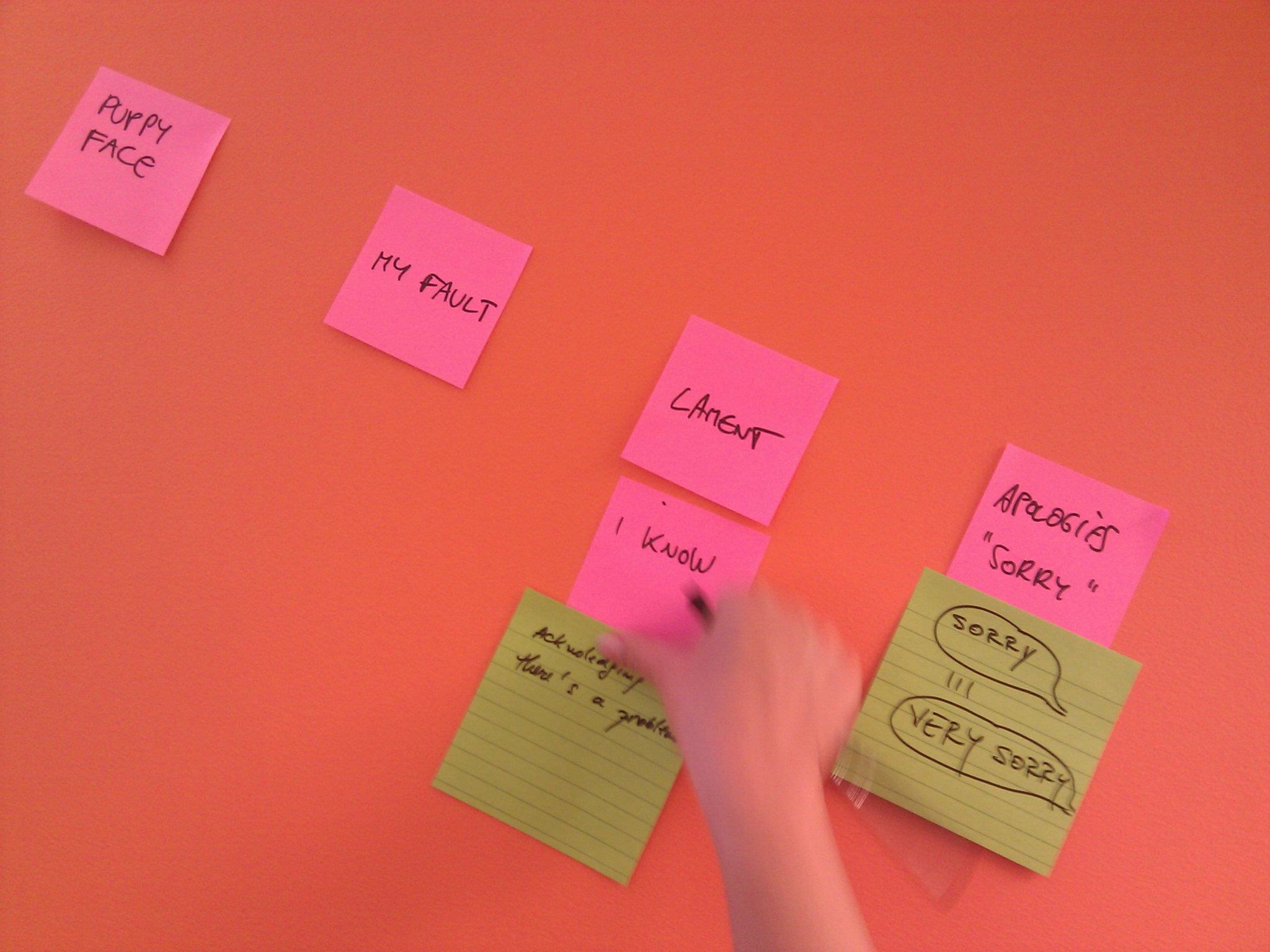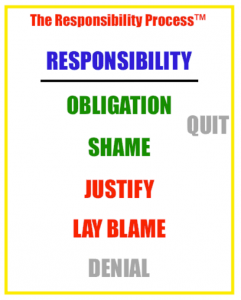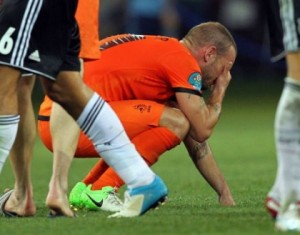
I was introduced to The Leadership Gift on a retreat hosted by Agileminds / Co-Learning a few months ago. @johan_tre and @JurgenLACoach illustrated the different steps in Avery’s Responsability Process™ by a rather funny serie of roleplays.
As I’ve been reading Avery’s book “Teamwork Is An Individual Skill“, I decided to attend a Webinar, hosted by the author himself on his Leadership Gift Program.
The Leadership Gift is much more than a toolkit or philosophy on how to work as teams. It is beautifully built around a mental process all humans are born with hard-wired in their brains.
Avery defines as follows:
The Responsibility Process, derived from field studies, shows how people “process” thoughts about avoiding or taking responsibility. Awareness of the process provides a framework for learning. It is the first “how to” model for taking, teaching, and inspiring personal Responsibility – the #1 principle of success. (source: ChristopherAvery.com)
The purpose is to train yourself in recognizing typical behavior humans show when facing problems, not only professionally, but in every circumstance, even in your day to day life.
By having the intention to change these patterns, the awareness they exist, and the willingness to be confronted with these kinds of behavior, you will eventually be able to change the way you behave, the way you function in teams, and the way others work with you in teams.
The ultimate goal is learning to become more productive, to eliminate frustration, to be adapted to deal with any kind of problem in any kind of situation. Or to quote one of @JurgenLACoach ‘s tweets: “Being responsible is the approach to build up a balanced and happy life.”
Avery uses islands as a metaphor. Our brain has to travel from island to island, to end up at the “true responsibility island”, in the following order:
- Denial
- Lay blame
- Justify
- Shame
- Obligation
- (Quit)
- Responsibility
Denial is the state of denying there is a problem. When the problem is recognized, the next 2 islands are externalizations of the problem: laying blame (the problem are the others), or justifying (those problems will always occur. It’s just like that). If people acknowledge the problem is internal, they feel ashamed, or eventually go to the Obligation island.

This final island is the interesting one, where a lot of people hang out. They go to work because they have to, they go to meetings they don’t like because they don’t have the choice. The mindset is “have to, don’t want to”. This kind of pseudo-responsibility is also known as “doing the right thing”. This worked in old hierarchical company structures, but not nowadays, where knowledge workers have no other choice but to work together within teams, acting responsible (and not just accountable).
True responsibility is one step further. You own your ability and power to create, choose and attract. You refuse to act on thoughts that are suggested by the previous 5 islands. Instead of coping with the problem, you deal with the problem.

For example, when interviewing the Dutch soccer team after their rather disastrous Uefa Euro 2012 campaign their reactions would be the following:
- Denial: “We did not lose the match! What are you talking about?”
- Lay Blame: “It’s the coach his fault. He didn’t take his responsibility!”
- Justify: “That’s just the way soccer goes. Sometimes you win, sometimes you lose. Every tournament, large teams don’t come up to expectations.”
- Shame: “We really played badly. I’m sorry. I’m such a bad soccer player. I earn too much money. I’m really really sorry.”
- Obligation: “I know. I should train harder. I should be a better team player. I must train harder. I know, I know.”
- Responsibility: “We are willing to improve. We won’t lay blame on someone or something else. We are going to face the problems, and start dealing with them.”
I cannot evaluate if The Leadership Gift actually works, as enrolling in the program is not quite free (it’s not expensive either, but somewhere in between). However, since I was introduced to the concepts used, I felt the return almost immediately.
Next to that, it is very complementary to the use of Lean/Agile thinking, and toolboxes such as Kanban or Scrum, as they are only valuable when people act responsibly.
If this tickles your brain, don’t hesitate, and enroll in one of the free preview webinars on http://www.christopheravery.com/leadership-gift-program-free-preview.
Hey Bart,
Glad to read you had a joyful learning experience at our Leadership Retreat and kept going forward with it. If you want to share idea’s you’ll know where to find me and hope to see you back at our next retreat sessions.
Grtz
/J
Hi Bart, thanks for this write-up about your experiences with Jurgen (who is a member of the Leadership Gift Program) and with your further study of my work. Your description is more than fair and accurate — it is excellent. I love seeing other people explain this challenging concept so well.
Best, Christopher